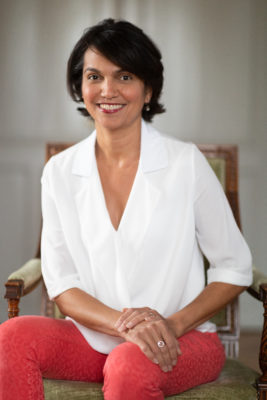Interview and translation by Alice Binnington – Action for Development
Could you tell us a little about your background?
I was born in Afghanistan and spent my early childhood there. I have wonderful memories of that childhood in Kabul. I remember the start of the war very well. In the beginning, my family and I thought we would hold out. But over the course of the following years things became increasingly difficult, by which I mean that my father started to feel like he wasn’t entirely safe. He was a doctor, and he ended up following my aunt, who suffered from an auto-immune disease, to Switzerland, to accompany her as a doctor. My uncles were already in Switzerland: one of my uncles had met a vaudois tourist in my grandfather’s hotel. They fell in love and he followed her to Vaud! Often that’s how immigration goes – you go where you already know somebody. That’s how I ended up in Switzerland. I remember, what surprised me was the lack of light in Geneva – we arrived in February! But I immersed myself in the culture. I had to learn the language and the cultural codes at the same time. Oh, I worked so hard! I opened myself to this Genevois and European culture, which is brilliant – the freedom allows you to flourish. I fought for that with my parents and my brothers. And I won. Now, I’m a teacher at the College Voltaire, a member of the Green Party and Administrative Councillor to the municipality of Onex.
How would you describe your experiences in Afghanistan?
I can’t say that I was traumatised by the war. Actually, I turned the war into a game. Whenever a bomber plane flew over me I made a wish. One evening, the Russians were bombing us really intensively… my grandparents and I went down into the cellar. I was so happy to be in the cellar! I loved to play down there and they never let me… I always felt safe.
When I returned to Afghanistan, what struck me the most was that it is so beautiful. You get the feeling that time has stopped, time is suspended in mid-air; this is a country that did not really live through the industrial revolution. The landscapes… I mean it’s extraordinary. You won’t find factories everywhere, there is no mass production. Kabul is 1800m above sea level – it’s the mountains, the blue sky; we loved to play in the snow.
A major part of being Afghan is pride. It’s an extraordinary culture. I always heard afghan music at home and our meals were exclusively afghan cuisine. Above all it’s about conviviality: the pleasure of being with other people.
What sort of observations have you made about the place of women in this society?
When I returned to Afghanistan, I had to wear a burqa, and it was just a nightmare. My mother, my sister and I put them on when we crossed the border: my mother and sister looked like ghosts to me. It was as if you were supposed to be ashamed of being a woman. What struck me also was that people recognised us as foreigners on the street despite our burqas: it was because we held ourselves upright. There is a segregation on the basis of sex in Afghanistan and a difference between women and men. It’s an extremely patriarchal society. The man dominates; and this occupation is evident from the occupation of public space. You wouldn’t see women on the street. There is such segregation, such a separation between men and women, such a ban on sexuality, and all this leads to behaviour that reflects extreme frustration. Even though I was wearing a burqa, trousers, a dress, even though I had all these layers, I have never felt so much that people were undressing me with their eyes, I felt naked. And that’s just the big cities!
Do you have a dream, wish or hope for Afghanistan ?
Yes, peace. With peace, education will improve. When I say peace, I really mean safety. The day that education will be as present in the countryside the same as in the cities, the country will evolve in the right direction in terms of freedom and equality.
The post 10th Anniversary: Our fifth guest in the series of interviews – Maryam Yunus-Ebener appeared first on .


